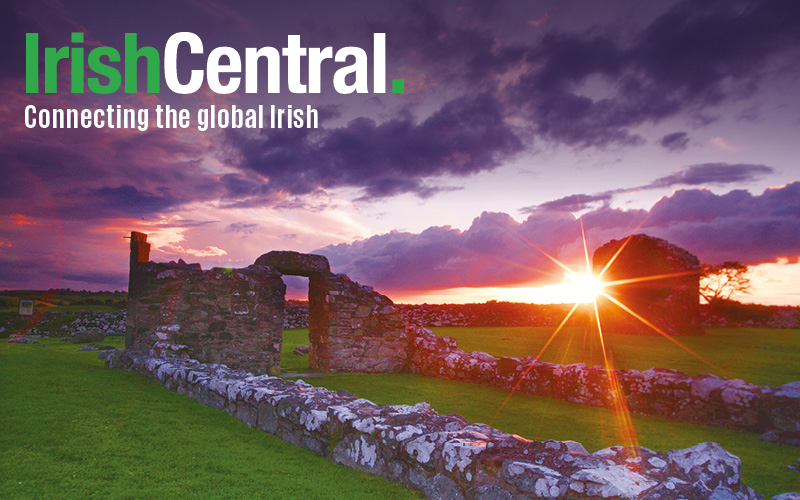So here we are in a brand new year and what do we get? A brand new political party, that's what. Just what we need in Ireland in 2015, right?
Well, actually, no. A brand new political party is probably the last thing we need here right now. We have more than enough political parties and political groups as it is, thank you very much.
The new party is so new it does not even have a name yet. Instead it is calling itself a "movement" and it is promising to get back to us later with a name, whenever it decides on one.
In the meantime, we are asked to go online to a website called RebootIreland (Google it) where we are told how to get involved or even how to become a candidate for the Rebooters in the next election. It also gives the "four principles" which will underpin the new policies it will have, whenever it decides on policies.
Where the "four principles" came from is a bit vague – maybe someone found them on tablets of stone up the Wicklow Mountains? And the "four principles" themselves are also a bit vague. They are as follows:
1. Build an economy for entrepreneurs across all sectors.
2. Foster a spirit of entrepreneurism in the public sector (those paid by the state) so that state workers who deliver the best results for public services will be rewarded.
3. Give politics back to the people – create a political system that supports freedom of thought, difference and independence.
4. Measure government against a clear social target – underpin Irish society through fiscal and social policy with a targeted minimum lifestyle standard.
From this you will gather that the new party will be center right, strongly in favor of entrepreneurship, liberal, inclusive and socially caring. But it's all so vague that it could mean anything really.
Mind you, that did not stop the few people behind the new party/movement presenting the "four principles" at the launch in Dublin last Friday as a breakthrough in political thinking and morality.
The leading light of the Rebooters is Lucinda Creighton, a young rural TD (member of Parliament) who used to be the Fine Gael junior minister for Europe. She had been promoted from nowhere by Taoiseach (Prime Minister) Enda Kenny to freshen up the look of his government, a favor she returned by turning against him.
Creighton refused to support the restrictive new legislation on abortion, was expelled from the party in the Dail (Parliament) as a result, and has been sulking and plotting on the backbenches since then. She is strongly pro-life, although she was at pains to point out at the launch that the new party is open to people of all views and will allow a free vote to its members on "matters of conscience."
Creighton comes across as the brightest girl in the class, the sort the nuns would have been proud of and who would have won all the school debates. She is articulate, super confident and ambitious, but also, perhaps, a little naive.
So far she is the only member of the Dail to become a Rebooter, so the party-to-be is very much a one-woman band right now. Apart from her, the only other well-known figure to declare his involvement at the launch was Eddie Hobbs, a financial "expert" and former presenter of consumer watchdog programs on TV.
So the new party has no policies and no high profile politicians as members apart from Creighton, which begs the question – why did they not wait until they were more organized before having the launch?
The reason is simple. It's all about catching the tidal wave of resentment that is now sweeping across the country as people continue to oppose water charges and other government austerity measures.
There is widespread disillusionment in the existing parties, in Fine Gael and Labour who are in government, and in Fianna Fail who sleep-walked us into the financial crisis in the first place.
Although Sinn Fein has strengthened its vote, particularly in deprived areas where many people are on welfare and open to political promises about "ending austerity,” there is a very large section of the electorate who will never vote for them because of their past.
There is also a handful of far left deputies in the Dail who are surfing the anti-water charges wave but don't really have credible economic policies that stand up to scrutiny; for that reason they are likely to remain a tiny minority.
And that leaves the large number of independent members of the Dail who don't belong to any party. The problem with them is that they cover the political spectrum from left to right and as a group have little common ground in the way of policies.
They include members who were elected because of rows over hospital closures, turf-cutting rights, wind farms, water charges and more. As we get closer to an election, voters will start asking themselves how such a disparate group of single issue candidates could ever agree on a range of detailed and coherent policies to run the country.
All of which means that there is indeed a hunger for change among the electorate at the moment, coupled with an aggressively cynical view of the existing political parties and the way the Dail is run. Whether that is the same thing as a demand for a new political party is open to question.
But there are those, like Creighton, who are eager to capitalize on the public scorn and anger and offer a fresh start. Or "a different kind of politics," as she puts it.
The last time this was tried was by the Progressive Democrats, back in the 1980s. But the PDs started with senior defectors from Fianna Fail and Fine Gael and were a significant grouping from the beginning.
Creighton is no Des O'Malley, or even Pat Cox or Mary Harney. She's a lightweight in comparison, with little experience and delusions about her own political vision and leadership qualities.
So where does all this leave us, as we head into a new year? Firstly, a general election has to be held before April 3, 2016, so effectively politicians here are already on an election footing and everything this year will be geared towards that.
There is a view that the government will cut and run later this year, rather than go right to the wire with the danger that an unforeseen calamity could ruin their chances at the last moment.
However, that seems unlikely since the government needs all the time possible to allow the effects of the improving economy to filter through to voters and their pockets. There were some minor give-backs in the last budget which will only appear on people's pay slips this month.
That will have only a marginal effect. Much more important will be the budget for 2016 in which we can expect the government to throw all the freebies they can at voters to buy their way back into power.
They need time. And that means an early election is unlikely to happen.
So the coming year will be a fascinating one in politics in Ireland as new alliances are formed and everyone shapes up for the vote. Given the low standing of the two government parties in recent polls and the high level of support for Sinn Fein and the independents, the stage is set for a fundamental shift in the Irish political landscape.
It's hard to see any way the government parties can get back into power. Even if they recover somewhat this year they are too far behind at this stage to get anywhere near a majority.
Certainly the Labour Party looks doomed; Sinn Fein has stolen its vote, just as it stole the SDLP vote in the North, and Labour's hopes that it can win back that support in working class areas may be no more than wishful thinking.
If the economy improves further this year there is a fair chance that, in spite of water charges and property tax, Fine Gael may not be decimated in the election to the extent that recent polls have indicated. The economic recovery and the fear of the chaos a Dail full of clueless independents could generate may be enough to steer many people back to Fine Gael to allow them to continue the rebuilding work.
A Fine Gael partial recovery this year would also make it unlikely that Fianna Fail would stage a comeback big enough to enable it to be the major party in a future coalition government. Sinn Fein may have reached its maximum level of support already, which could be enough to make it a potential partner in a coalition government but not enough to make it a major player.
And all that raises all kinds of fascinating possibilities. One of these would be a future Fianna Fail-Sinn Fein government, possibly with support from a few independents.
Another one – the obvious one – would be a final ending of Civil War politics in Ireland with a coalition between Fine Gael and Fianna Fail. There is little or no difference between them in relation to the North, of course.
But there is also virtually no difference between them on economic and social policy. So the idea that they might share power is not so far fetched.
It would also be a sensible outcome, particularly if it meant keeping out Sinn Fein, the left and the raggle taggle army of independents. A combination of those disparate and contradictory elements in government would be a recipe for chaos and destabilization.
Creighton won't be the only one trying to start a new party this year. Some of those on the far left are already trying to work out an anti-austerity platform they can all support in a new left wing alliance.
And we can also expect one, if not two, groupings of center and center right Independents to form so they can put a common policy agenda before voters in the election.
This is the year when politics here changes and reshapes itself for the next generation. Or as one wag here put it, "A terrible Rebooty is born..."




Comments